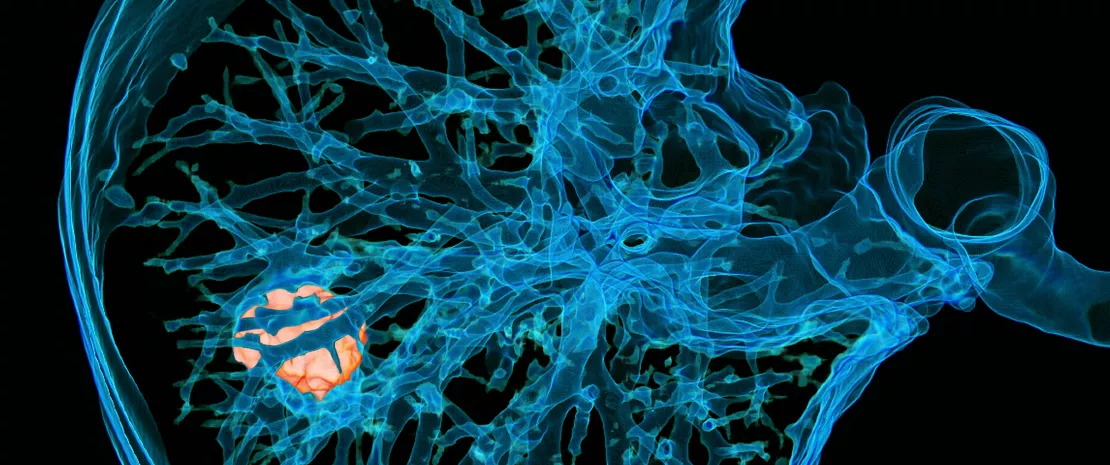Gut microbiota is involved in lung cancer
A team of international researchers recently brought to light the role of gut dysbiosis in lung cancer and identified two bacterial genera which could be used as biomarkers of the disease and its progression.
Sources
This article is based on scientific information

About this article
Although the role of the pulmonary microbiota in the pathogenesis of lung cancer (LC) has previously been analyzed, nothing had been written on the role of the gut microbiota until now. The gut microbiota of 30 patients with LC and 30 healthy control subjects was analyzed through high-throughput sequencing of 16S rRNA.
Significant differences in composition
No significant decrease in microbial diversity (Shannon index) was observed in patients with LC compared to controls. However, microbiota composition (beta diversity) proved to be very different between the two groups: controls had a considerably higher abundance of bacteria from Actinobacteria phylum (7.74% vs. 3.14% for patients with LC) and Bifidobacterium genus (4.70% vs. 1.51%). Furthermore, patients with LC presented particularly high levels of bacteria from the Enterococcus genus (4.26% vs. 0.23%).
Disrupted microbiota
Researchers also observed the functioning of the gut microbiota in the two groups by determining the functional abundance spectra. This representation of the expression levels of functional proteins and specific metabolic capacity of the microbiota revealed a significant decrease of 24 metabolic pathways in LC patients compared to controls. Among altered pathways: decrease by more than 80% of expression of proteins involved in chromatin structure and dynamics (main component of eukaryotic chromosomes), as well as in RNA processing and modification.
Possible biomarkers of lung cancer
The authors confirmed the existence of a gut microbiota specific to lung cancer, as well as the involvement of this dysbiosis in the disease progression. The cause could be: a decrease in bacteria known for their anticancer properties (Actinobacteria) and/or probiotic effects (Bifidobacterium); an increase of bacteria (Enterococcus) with a proinflammatory role in other cancers; and a decline in global functioning of the gut microbiota, especially with an impaired capacity to repair damaged DNA. Researchers indicated that these results are in line with findings from these past two years regarding the role of the gut microbiota in the etiology of many cancers and encourage others to pursue this line of research. Objective? Identifying gut species (from the Bifidobacterium and Enterococcus genera, for instance) that could be used as diagnostic and therapeutic biomarkers.










